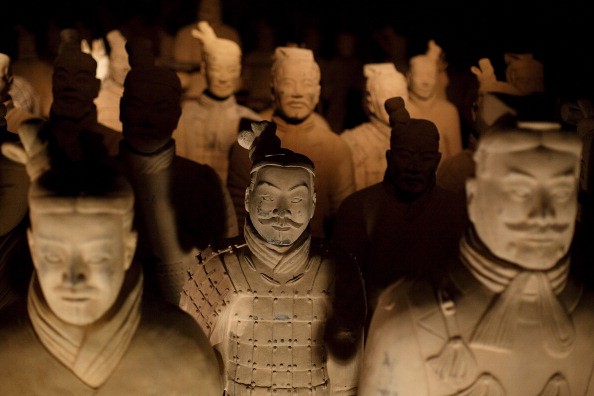Over the years, China has been known to many as the land of counterfeit goods. The tides are turned, however, as the nation fights the onslaught of fake terracotta armies around the globe, The Telegraph reported.
A warning was thinly veiled in the Museum of the First Qin Emperor’s official statement against the replicas, saying that it “reserves the right to pursue” parties guilty of infringing the copyright of the original terracotta army.
According to various Chinese media outlets, the Museum of the First Qin Emperor is preparing to pursue cases against two “terracotta warrior” attractions-- one in Anhui Province, and the other in Belgium.
Located hundreds of miles from Xi’an, the home of the original terracotta artifacts, the Anhui theme park is being accused of capitalizing in the allure of the terracotta warriors. There are approximately 1,000 replicas in the theme park, which was completed in 2008.
The Mausoleum Site Museum, which manages the Xi’an warriors, said in a statement that the theme park is guilty of copyright infringement.
“The museum did not permit or give authorization to the displaying of the copycat terracotta warriors in Taihu County of Anhui Province. We reserve the right to take legal action against any violators in accordance with law,” the statement read.
Meanwhile, dozens of replica life-size warriors, as well as smaller figurines, are up for display in the Liege Railway Station in Belgium, according to Xinhua news agency.
Some people are torn whether the two exhibits did infringe on copyright laws. For Yang Ming, a law professor at Peking University, it should be determined whether the exhibits were promoted as replicas or as genuine ones.
“If they did promote it as a replica, then it is a debatable issue,” Yang told CriEnglish.com.
In Anhui Park’s case, the official website did promote the exhibit as a replica, with the main aim to “let the public feel the culture of the Qin Dynasty.”



























